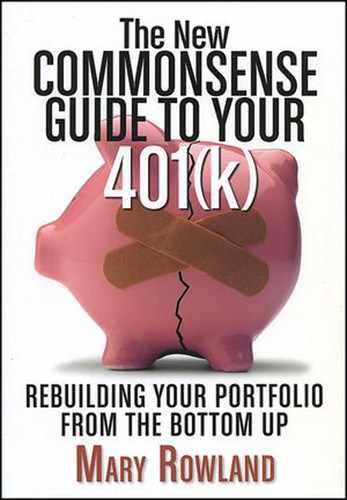WHY HAS INVESTING grown so complicated? The world is more complicated, of course, but another problem is that economic and investment theories that were viewed as forever workable twenty years ago have been turned on their heads by new experiments.
Consider the efficient market theory. Efficient market theory holds that all information about securities is known and is reflected in the stock prices, and so every security is rationally and appropriately priced. There is so much knowledge available, this theory holds, and so many knowledgeable players in the market that any changes in stock prices are due to random forces, almost mechanical forces, and market prices will quickly reset to again reflect, appropriately, the value of the security. Of course, anyone who has ever invested in a stock knows that this theory is pure folly. If it were true, little money would ever be made in the stock market.
In the 1980s, a group of economists began talking about what they called "behavioral economics" or "behavioral finance." They argued that people do not always choose an investment rationally. Imagine that! Indeed, these economists said, they detected all kinds of situations in which psychology had more influence on a decision than did economic reality. For example, investors hate to lose much more than they enjoy winning. They feel much more upset by a near miss than by an event they missed by a mile. Behavioral Economists like Meir Statman at Santa Clara University study the way investors make decisions and how cognition errors and emotions affect these decisions. For instance, investors show overconfidence, believing they have more control over life circumstances than they, in fact, do.
Initially these new theories—the ones that argued that cognitive bias can influence asset prices—were controversial. Economists in these new fields, like Richard Thaler at the University of Chicago, an early researcher in behavioral finance, were viewed with suspicion. Surely they'd made mistakes in their experiments if they found that man could be irrational. This was not the economic model! This was not the truth!
Behavioral economists found dozens of ways that investors, and consumers, make financial decisions based on something other than rationality. For example, entrepreneurs tend to be overconfident investors, investing in the things they know and understand rather than diversifying. Likewise, people invest too much in local companies and way too much in the stock of the company they work for because they trust what they know even though they shouldn't, as the employees at and investors in Enron found out when that company, once one of the biggest in the world, collapsed and filed for bankruptcy in December 2001.
Behaviorists also tell us that people are much more influenced by their own recent experiences than by some long-range average or "norm." So it is that investors in 2000 believed the stock market was headed up and up and up and their only task was to get their money on the table. Likewise, in 2009, investors were shell-shocked. They believed that the markets would go to zero, that every single penny they had invested would disappear.
We can sum up behavioral finance by saying that it explains all the various ways that people save, spend, and invest their money— ways that an economist of twenty years ago would call irrational. We certainly don't have to go so far as gambling to find examples of that. So a behaviorist would say that markets are often inefficient, yet the inefficiencies are not so clear as to provide wealth building opportunities. Indeed, the only rule that is tried and true is that if everyone is running toward you, you should run the other way. Do not follow the herd. The market rebound from March 2009 to September 2009 once again showed that despair, which was every-where in March, turned quickly and starting with a few contrarian investors, built to a major rally before many investors recognized the pace of recovery.
